Source: The Chronicles of Prydain (1964–1968), Book I: The Book of Three (1964), Chapter 1
Context: "Why?" Dallben interrupted. "In some cases," he said, "we learn more by looking for the answer to a question and not finding it than we do from learning the answer itself."
Works
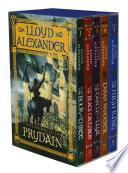
The Chronicles of Prydain
Lloyd Alexander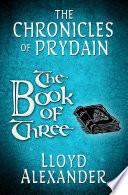
The Book of Three
Lloyd Alexander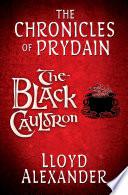
The Black Cauldron
Lloyd Alexander
Westmark
Lloyd Alexander
Taran Wanderer
Lloyd Alexander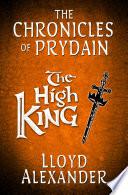
The High King
Lloyd Alexander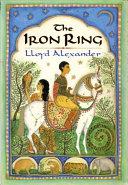
The Iron Ring
Lloyd Alexander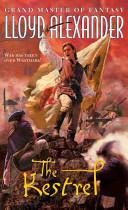
The Kestrel
Lloyd AlexanderThe Foundling and Other Tales of Prydain
Lloyd Alexander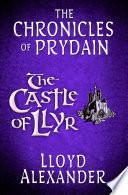
The Castle of Llyr
Lloyd AlexanderFamous Lloyd Alexander Quotes
“Fantasy is hardly an escape from reality. It's a way of understanding it.”
A Visit with Lloyd Alexander https://www.youtube.com/watch?v=GilIovrb4uE&feature=youtu.be&t=5m43s (1994)
“Story, finally, is humanity's autobiography.”
"The Grammar of Story", in Celebrating Children's Books (1981), p. 13
Source: Time Cat (1963), Chapter 3 “Neter-Khet” (p. 20)
“We’re neither good nor evil. We’re simply interested in things as they are.”
Source: The Chronicles of Prydain (1964–1968), Book II: The Black Cauldron (1965), Chapter 14
Lloyd Alexander Quotes about Evil
“Is there worse evil than that which goes in the mask of good?”
Source: The Chronicles of Prydain (1964–1968), Book V : The High King (1968), Chapter 11 (p. 142)
“Evil cannot be conquered by wishing.”
Source: The Chronicles of Prydain (1964–1968), Book V : The High King (1968), Chapter 21
Source: The Chronicles of Prydain (1964–1968), Book II: The Black Cauldron (1965), Chapter 20
Source: The Chronicles of Prydain (1964–1968), Book V : The High King (1968), Chapter 21
Context: “Dyrnwyn is yours,” Gwydion said, “as it was meant to be.”
“Yet Arawn is slain,” Taran replied. “Evil is conquered and the blade’s work done.”
“Evil conquered?” said Gwydion. “You have learned much, but learn this last and hardest of lessons. You have conquered only the enchantments of evil. That was the easiest of your tasks, only a beginning, not an ending. Do you believe evil itself so quickly overcome? Not so long as men still hate and slay each other, when greed and anger goad them. Against these even a flaming sword cannot prevail, but only that portion of good in all men’s hearts whose flame can never be quenched.
The runic inscription upon the scabbard of Dyrnwyn, correctly read by the bard Taliesin, in Chapter 19
The Chronicles of Prydain (1964–1968), Book V : The High King (1968)
Lloyd Alexander Quotes about love
Source: The Chronicles of Prydain (1964–1968), Book II: The Black Cauldron (1965), Chapter 8
“-"He loved her… It was noble of him. It was beautiful."
-"It was stupid.”
Source: Westmark
“Indeed, the more we find to love, the more we add to the measure of our hearts.”
Source: The Black Cauldron
"The Grammar of Story", in Celebrating Children's Books (1981), pp. 10–11
Newbery Award acceptance speech (1969)
Lloyd Alexander: Trending quotes
Source: The Chronicles of Prydain (1964–1968), Book V : The High King (1968), Chapter 21 (closing words)
Source: The Chronicles of Prydain (1964–1968), Book IV: Taran Wanderer (1967), Chapter 16
“We hold each other’s lives in our open hands, not in clenched fists.”
Source: The Chronicles of Prydain (1964–1968), Book II: The Black Cauldron (1965), Chapter 2
Lloyd Alexander Quotes
“Child, child, do you not see? For each of us comes a time when we must be more than what we are.”
Source: The Chronicles of Prydain (1964–1968), Book III: The Castle of Llyr (1966), Chapter 1
Source: The Black Cauldron
“Keep reading. It's one of the most marvelous adventures that anyone can have.”
Interview with Scholastic students http://www.scholastic.com/teachers/article/lloyd-alexander-interview-transcript (1999)
“I am well content as an Assistant Pig-Keeper.”
Source: The Chronicles of Prydain (1964–1968), Book V : The High King (1968), Chapter 21
Context: “Long ago I yearned to be a hero without knowing, in truth, what a hero was. Now, perhaps, I understand it a little better. A grower of turnips or a shaper of clay, a Commot farmer or a king — every man is a hero if he strives more for others than for himself alone. Once,” he added, “you told me that the seeking counts more than the finding. So, too, must the striving count more than the gain.
“Once, I hoped for a glorious destiny,” Taran went on, smiling at his own memory. “That dream has vanished with my childhood; and though a pleasant dream it was fit only for a child. I am well content as an Assistant Pig-Keeper.”
“Now I know who I am: myself and none other. I am Taran.”
Source: The Chronicles of Prydain (1964–1968), Book IV: Taran Wanderer (1967), Chapter 21
Context: “I saw myself,” Taran answered. “In the time I watched, I saw strength – and frailty. Pride and vanity, courage and fear. Of wisdom, a little. Of folly, much. Of intentions, many good ones; but many more left undone. In this, alas, I saw myself a man like any other.
“But this, too, I saw,” he went on. “Alike as men may seem, each is different as flakes of snow, no two the same. You told me you had no need to seek the Mirror, knowing you were Annlaw Clay-Shaper. Now I know who I am: myself and none other. I am Taran.”
“Many have pursued honor, and in the pursuit lost more of it than ever they could gain.”
Source: The Chronicles of Prydain (1964–1968), Book IV: Taran Wanderer (1967), Chapter 21
Context: “When I was a child I dreamed of adventure, glory, honor in feats of arms. I think now that these things are shadows.”
“If you see them as shadows then you see them for what they are,” Annlaw agreed. “Many have pursued honor, and in the pursuit lost more of it than ever they could gain.”
The Foundling, pp. 25–27
The Foundling and Other Tales of Prydain (1973)
Context: ... the book told him of other ways of the world; of cruelty, suffering, and death. He read of greed, hatred, and war; of men striving against one another with fire and sword; of the blossoming earth trampled underfoot, of harvests lost and lives cut short...
But now his heart lifted. These pages told not only of death, but of birth as well; how the earth turns in its own time and in its own way gives back what is given to it; how things lost may be found again; and how one day ends for another to begin. He learned that the lives of men are short and filled with pain, yet each one a priceless treasure, whether it be that of a prince or a pig-keeper. And, at the last, the book taught him that while nothing was certain, all was possible.
Source: The Chronicles of Prydain (1964–1968), Book V : The High King (1968), Chapter 9
Context: “You are the oaken staff I lean on,” Taran said. “More than that.” He laughed. “You are the whole sturdy tree, and a true warrior.”
Coll, instead of beaming, looked wryly at him. “Do you mean to honor me?” he asked. “Then say, rather, I am a true grower of turnips, and a gatherer of apples. No warrior whatever, save that I am needed thus for a while. My garden longs for me as much as I long for it.”
“Speak up, my boy. If you want truth, you should begin by giving it.”
Source: The Chronicles of Prydain (1964–1968), Book IV: Taran Wanderer (1967), Chapter 1
Source: The Chronicles of Prydain (1964–1968), Book V : The High King (1968), Chapter 21
Context: “How then?” Taran asked. “Could The Book of Three deceive you?”
“No, it could not.” Dallben said. “The book is thus called because it tells all three parts of our lives: the past, the present, and the future. But it could as well be called a book of ‘if.’ If you had failed at your tasks; if you had followed an evil path; if you had been slain; if you had not chosen as you did — a thousand ‘ifs,’ my boy, and many times a thousand. The Book of Three can say no more than ‘if’ until at the end, of all things that might have been, one alone becomes what really is. For the deeds of a man, not the words of a prophecy, are what shape his destiny.”
“Most of us are called on to perform tasks far beyond what we believe we can do.”
Author's Note
Source: The Chronicles of Prydain (1964–1968), Book I: The Book of Three (1964)
Context: Most of us are called on to perform tasks far beyond what we believe we can do. Our capabilities seldom match our aspirations, and we are often woefully unprepared. To this extent, we are all Assistant Pig-Keepers at heart.
Source: The Chronicles of Prydain (1964–1968), Book I: The Book of Three (1964), Chapter 13
“I intend to follow the path of virtue. It will not be overcrowded.”
Source: Westmark
“… alas, raising a young lady is a mystery even beyond an enchanter's skill.”
Source: The Castle of Llyr
“For the deeds of a man, not the words of a prophecy, are what shape his destiny.”
Source: The High King
Source: The Chronicles of Prydain (1964–1968), Book I: The Book of Three (1964), Chapter 12
“Trust your luck, Taran Wanderer. But don't forget to put out your nets!”
Source: Taran Wanderer
“There is more honor in a field well plowed than in a field steeped in blood.”
Source: The Chronicles of Prydain (1964–1968), Book II: The Black Cauldron (1965), Chapter 3
Context: "I have marched in many a battle host," Adaon answered quietly, "but I have also planted seeds and reaped the harvest with my own hands. And I have learned there is greater honor in a field well plowed than in a field steeped in blood."
“If I fret over tomorrow, I'll have little joy today.”
Source: The Chronicles of Prydain (1964–1968), Book IV: Taran Wanderer (1967), Chapter 17 (Llonio)
“Behind one truth there is always yet another.”
Source: The Iron Ring
“Are you slow-witted? I'm so sorry for you. It's terrible to be dull and stupid.”
Source: The Book of Three
Source: The Chronicles of Prydain (1964–1968), Book IV: Taran Wanderer (1967), Chapter 19 (Annlaw)
“No matter what has happened, you're not a pig-boy; you're an Assistant Pig Keeper!”
Source: The Black Cauldron
Source: The Chronicles of Prydain (1964–1968), Book V : The High King (1968), Chapter 20
Source: The Black Cauldron
Context: Orgoch gave a most ungentle snort. Orddu, meanwhile, had unfolded a length of brightly woven tapestry and held it out to Taran.
“We came to bring you this, my duckling,” she said. “Take it and pay no heed to Orgoch’s grumbling. She’ll have to swallow her disappointment—for lack of anything better.”
“I have seen this on your loom,” Taran said, more than a little distrustful. “Why do you offer it to me? I do not ask for it, nor can I pay for it.”
“It is yours by right, my robin,” answered Orddu. “It does come from our loom, if you insist on strictest detail, but it was really you who wove it.”
Puzzled, Taran looked more closely at the fabric and saw it crowded with images of men and women, of warriors and battles, of birds and animals. “These,” he murmured in wonder, “these are of my own life.”
“Of course,” Orddu replied. “The pattern is of your choosing and always was.”
“My choosing?” Taran questioned. “Not yours? Yet I believed...” He stopped and raised his eyes to Orddu. “Yes,” he said slowly, “once I did believe the world went at your bidding. I see now it is not so. The strands of life are not woven by three hags or even by three beautiful damsels. The pattern indeed was mine. But here,” he added, frowning as he scanned the final portion of the fabric where the weaving broke off and the threads fell unraveled, “here it is unfinished.”
“Naturally,” said Orddu. “You must still choose the pattern, and so must each of you poor, perplexed fledglings, as long as thread remains to be woven.”
“There is truth in all things, if you understand them well.”
Source: The Chronicles of Prydain (1964–1968), Book II: The Black Cauldron (1965), Chapter 3
Source: The Chronicles of Prydain (1964–1968), Book V : The High King (1968), Chapter 10 (King Math)
Source: The Chronicles of Prydain (1964–1968), Book IV: Taran Wanderer (1967), Chapter 1
Source: The Chronicles of Prydain (1964–1968), Book V : The High King (1968), Chapter 3 (Taran)
“Even in a fantasy realm, growing up is accomplished not without cost.”
Author's Note
The Chronicles of Prydain (1964–1968), Book II: The Black Cauldron (1965)
“Well, that is one of the three foundations of learning: see much, study much, suffer much.”
Source: The Chronicles of Prydain (1964–1968), Book I: The Book of Three (1964), Chapter 1
Source: The Chronicles of Prydain (1964–1968), Book I: The Book of Three (1964), Chapter 2
Source: The Chronicles of Prydain (1964–1968), Book IV: Taran Wanderer (1967), Chapter 21
Source: The Chronicles of Prydain (1964–1968), Book IV: Taran Wanderer (1967), Chapter 19 (Annlaw)
“It is not the trappings that make the prince, nor, indeed, the sword that makes the warrior.”
Source: The Chronicles of Prydain (1964–1968), Book I: The Book of Three (1964), Chapter 2
“Are these signs of hope, or do we deceive ourselves by wishing them to be?”
Source: The Chronicles of Prydain (1964–1968), Book V : The High King (1968), Chapter 15 (Taran)